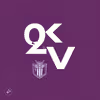Open-Insurance-LLM-Llama3-8B
| Property | Value |
|---|---|
| Parameter Count | 8.05 billion |
| Model Type | Instruction-tuned Language Model |
| Base Model | nvidia/Llama3-ChatQA-1.5-8B |
| License | llama3 |
| Language | English |
What is Open-Insurance-LLM-Llama3-8B?
Open-Insurance-LLM-Llama3-8B is a specialized language model fine-tuned for insurance-related applications. Built upon Nvidia's Llama3-ChatQA-1.5-8B architecture, this model represents a significant advancement in domain-specific AI for insurance. With 8.05 billion parameters and 20.97M trainable parameters (0.26% of total), it's optimized using LoRA technology for efficient fine-tuning while maintaining high performance.
Implementation Details
The model leverages advanced architectural features from Llama 3, including enhanced attention mechanisms and the ChatQA 1.5 instruction-tuning framework. The implementation uses FP16 precision and includes specific LoRA configurations with r=8, lora_alpha=32, and targeted fine-tuning of key projection layers.
- Specialized training on InsuranceQA dataset
- Optimized using LoRA with 8-bit quantization
- Multiple attention projection targets (up_proj, down_proj, gate_proj, k_proj, q_proj, v_proj, o_proj)
- Available in both full and quantized GGUF versions
Core Capabilities
- Insurance policy interpretation and explanation
- Claims processing assistance and guidance
- Coverage analysis and risk assessment
- Insurance terminology clarification
- Policy comparison and recommendations
- Compliance question handling
Frequently Asked Questions
Q: What makes this model unique?
This model combines the powerful Llama 3 architecture with specialized insurance domain knowledge, making it particularly effective for insurance-related queries while maintaining the general capabilities of a large language model. The use of LoRA fine-tuning allows for efficient domain adaptation while preserving the base model's capabilities.
Q: What are the recommended use cases?
The model is ideal for insurance professionals, customer service applications, and automated insurance query systems. However, it should be used as an informational tool rather than a replacement for professional insurance advice, with outputs verified by qualified professionals for critical decisions.







